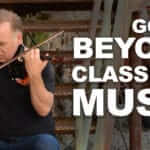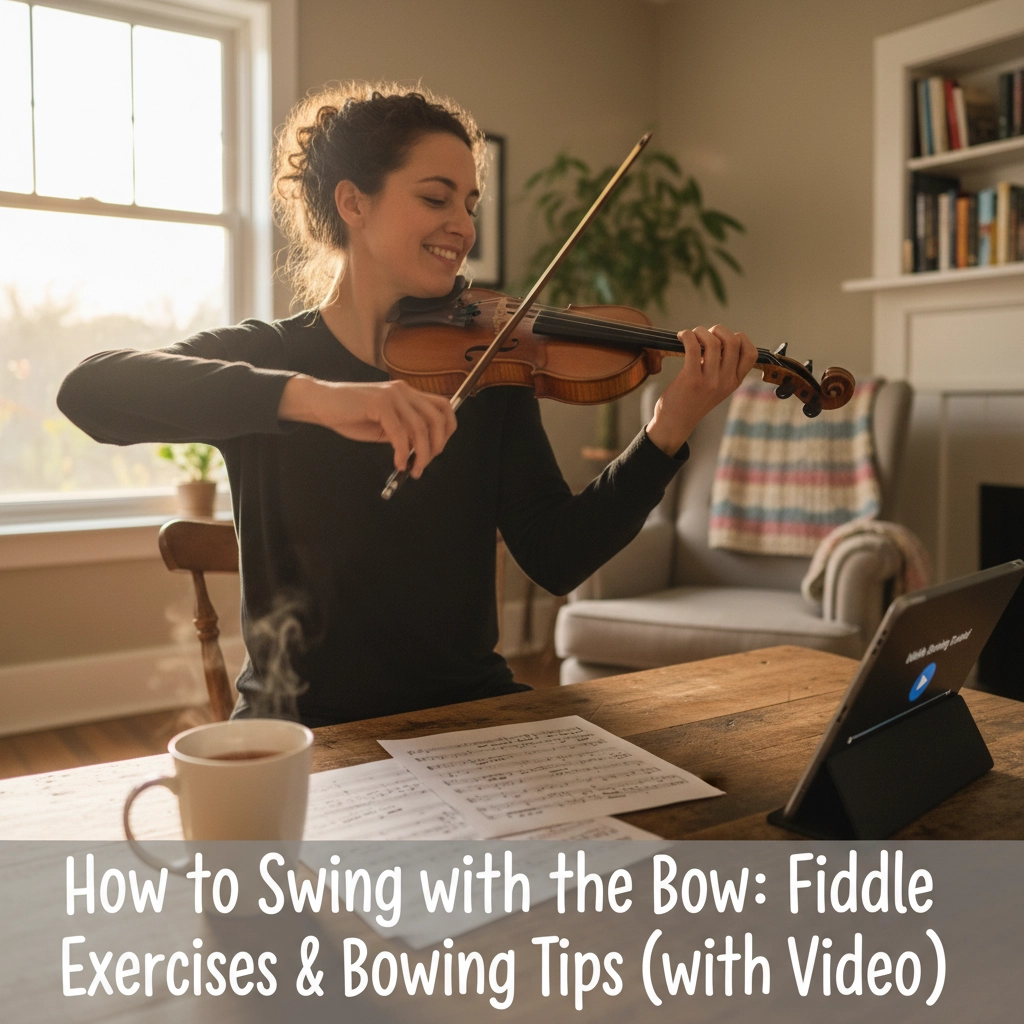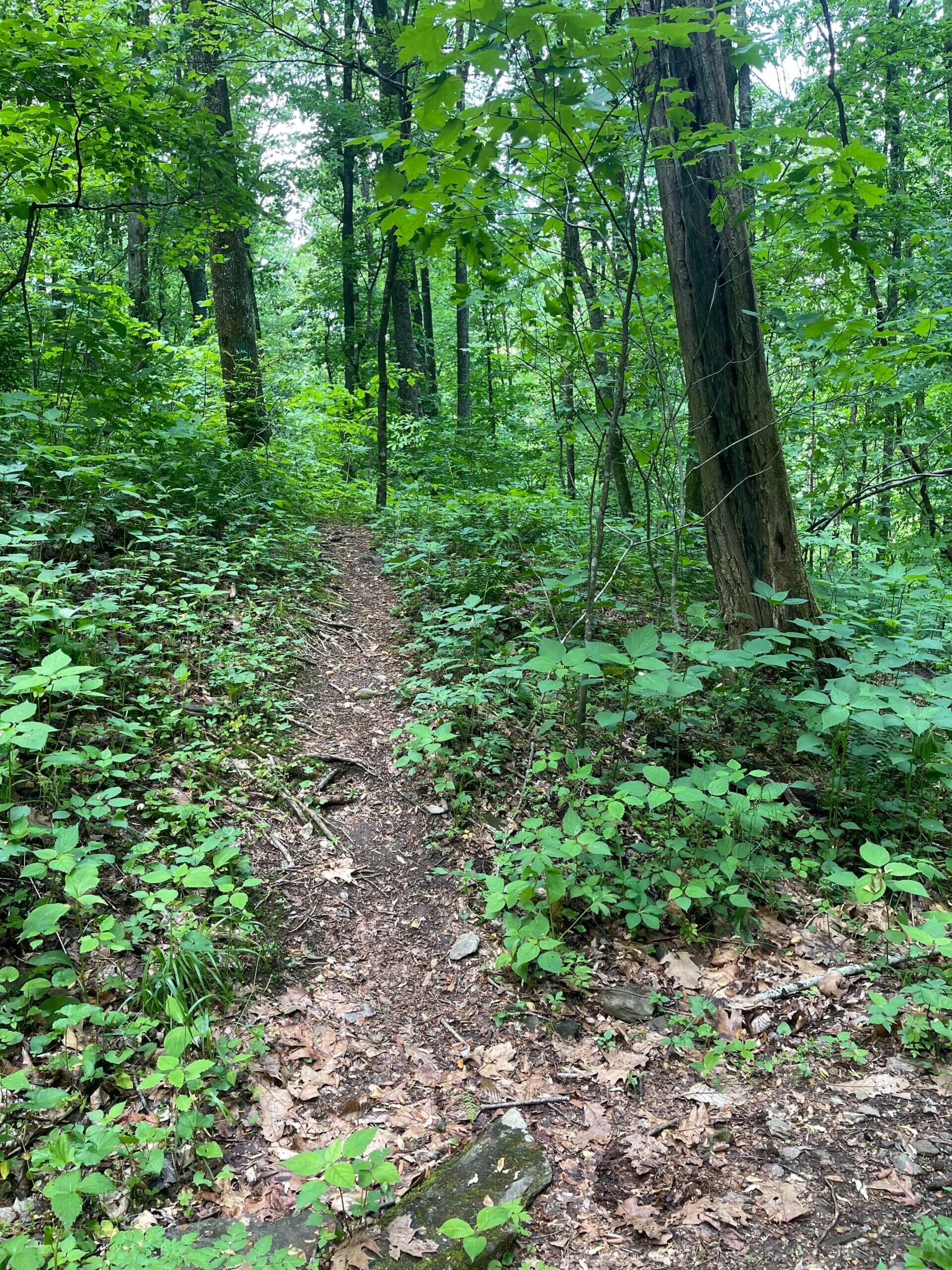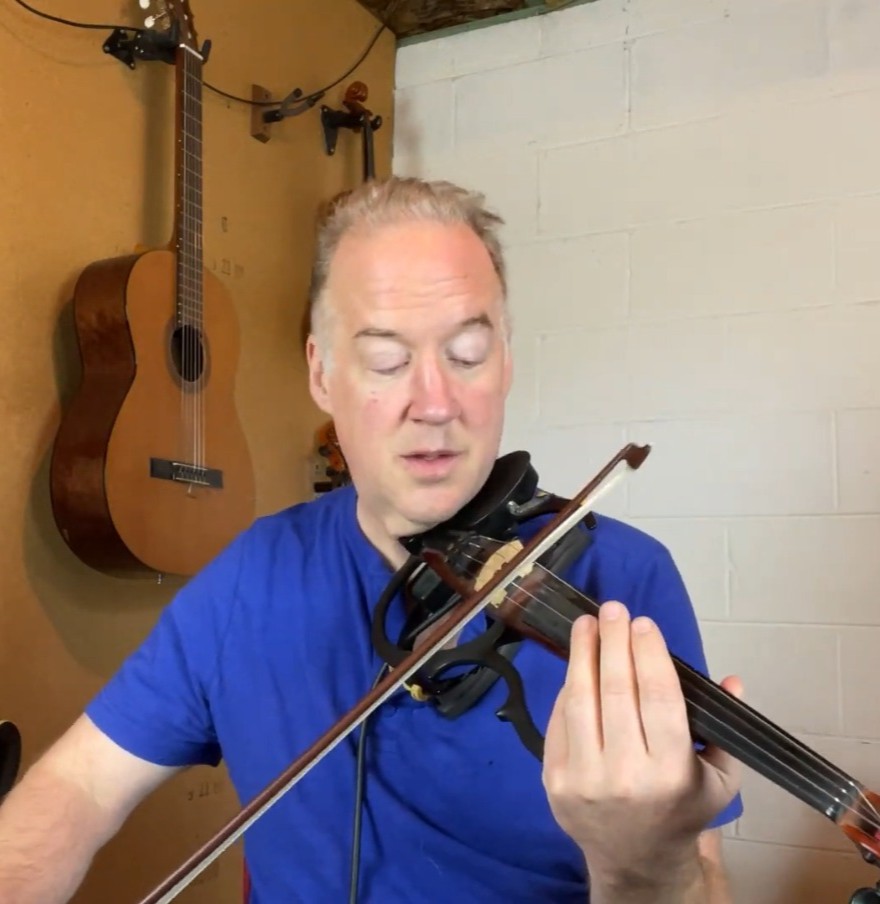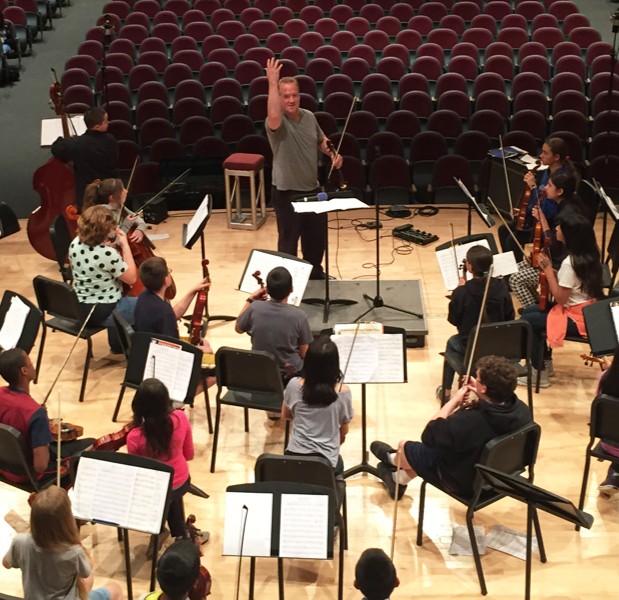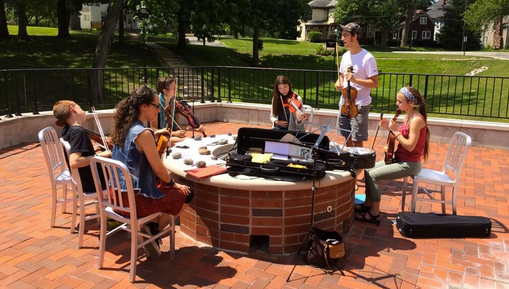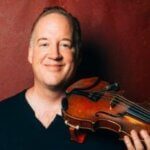I love classical music and I respect classical musicians, but the culture of classical music education falls short in many ways and needs to change.
Until it changes, classical musicians stand to gain by learning new skills outside the classical music world.
Table of Contents
Here are nine benefits that I’ve experienced by expanding on my classical training, and nine reasons for any classical musician to consider going beyond theirs. Watch the video or read below.
-More diverse professional opportunities and income streams
Musicians with broad skill sets have greater freedom and flexibility in how they earn income. This takes shape in the variety of opportunities that open up when you embrace the possibility of exploring new musical territory.
Versatile performers can play without being dependent on sheet music, communicate more easily with a wider range of musicians, and perform different styles of music in venues outside those typical of orchestral music.
They can earn money from composing, arranging, or recording and producing music.
Teachers with broader skills can teach more things to more students.
-Variety of Artistic Choices
Orchestral musicians often play a limited repertoire, some of which repeats with the seasons. A common complaint I’ve heard from orchestral musicians is that sometimes the repertoire is not as varied or challenging as they would like.
It wasn’t like this for most of us when we were in conservatory. The problem starts when school ends and the real world sets in. What many lose after conservatory is the feeling that there is always something new to explore and challenge yourself with musically.
Perhaps some classical musicians continue to enjoy this level of intensity and inspiration in higher-level orchestral, chamber, or solo careers. But for many, the reality of a classical career can be monotonous.
I remember observing this when first being hired to the Columbus Symphony Orchestra while still in college. Students seemed driven and inspired, while many orchestra musicians seemed bored or annoyed that they had to show up for yet another orchestra rehearsal for a piece they’ve played many times before.
Some musicians do one thing very well and get a lot of joy out of it. For others who seek variety, imagine how excited you would be coming to work if every day offered a new challenge. Since I do so many different things all the time in my career, when I show up to play classical music I feel like it’s a party.
– Connect with More People
Surrounding ourselves with the same people can feel like being in an echo chamber. Going outside the classical music world enables one to connect with other musicians and audiences. Each time I have expanded my personal network with other types of musicians, it has enriched both my worldview and perspective on music.
These personal connections also helped me develop a sense of personal identity. This was in large part possible because I was interacting with people coming from different backgrounds with a different musical understanding.
Often classical music spaces are segregated, inaccessible, or exclusionary, although to be fair, there is more effort directed at changing this now. Beyond welcoming all people into classical music, why can’t the classical music community show more respect to the music from other cultures? This would be a powerful way to change the impression that the classical music world is too white.
Recognizing and appreciating the depth and richness of music beyond the Western European canon requires a mindset of deeper listening – much like the practice of music making.
Inertia pushes us to stay within gated communities. But this inertia can be changed when we change the culture of music education. It takes proactive effort to break out and connect- We may need to put ourselves in situations that feel a bit uncomfortable. In recognizing that what we don’t know or are unfamiliar with has potential value, we can develop greater empathy for people around us, see them in a more humanized way, and influence others to do the same.
-Personal and Artistic Growth
The ability to be flexible and open-minded to new training methods and techniques ultimately translates into the personal realm as well as the musical. When you flex your psychological muscle to step outside your comfort zone consistently, you create a habit of being willing to take risks and learn new things that will benefit other areas of life. Improved musicianship can be the gateway to an improved human.
I find that pushing out of my comfort zone is what helps me to grow both artistically and personally. I believe it’s been important to add skills, join new networks of people, try different types of music, and reinvent my career as my life naturally evolves.
Classical musicians, while they have strengths in some areas, typically have deficits in others. One of the biggest surprises to me is how the new skills I’ve learned outside classical training have helped me become a better classical musician. Although some of my technique on the violin isn’t what it was when I was 19, my listening, rhythm, awareness, and overall musicality have evolved in a way that gives me significantly more confidence as an overall musician.
Again, many people continue to grow within a context of a narrow field or focus. If that’s you, cool.
-Advocacy and Entrepreneurialism
When you are forced to advocate for the value of what you do, you’re forced to value what you do. Or, as my dad used to tell me, “You’re worth whatever you charge”.
Many musicians complain about “arts advocacy” but they don’t walk the walk. Advocacy requires practice and it takes learning skills.
Building your own concert series, festival, or outreach programs, playing in the street, filling a private studio, enrolling patrons, creating sponsorships, selling albums – these types of entrepreneurial activities enable you to create self-sufficiency and build an audience.
The process of offering a service as a musician, charging for it, and enrolling others into the value it brings them, is widely underestimated and misunderstood: Music will not exist without resources. Musicians can’t make music without tapping into resources. This is why entrepreneurialism and the creation of art/music must be considered as intertwined.
So many musicians who work for a boss or organization have never had to cultivate this type of hustle, and often this correlates with an attitude of complacency, powerlessness, or lack of responsibility or personal accountability. Complaining about the institution or orchestra you work for, complaining about the state of arts funding, complaining about how the times are changing, complaining about the new generation, or just complaining that your town doesn’t support or appreciate good music, is not productive to or effective for the reality of the industry we work in.
Complaining doesn’t have the power to enact change – Go out and create an audience yourself.
Of those that are unable to do this, many are left to audition for a job and then complain afterwards about the politics of why they didn’t get the job, or if they did get the job, complain about the job itself. And this is not just specific to classical music. Musicians across the board tend to suffer from a lack of business chops.
We can learn a lot about advocacy outside of classical music training. It’s partly why over the past several years I’ve created various services around advocacy and entrepreneurialism for musicians, and have personally coached over 100 musicians in building their sustainable careers.
-Creative Self Expression
While classical music is undoubtedly a creative endeavor, there’s a different type of creativity at play when improvising, arranging, or composing. Some other traditions of music encourage these types of creativity.
Expressing myself creatively, and discovering a unique sound or voice is a hugely satisfying outcome of studying beyond classical music. Whether or not many people resonate with my “sound” is irrelevant. Some people will and some people won’t. That’s okay.The fact that I have a sound is rewarding in and of itself.
What if your musical sound was as identifiable as Vivaldi?
If developing the craft and art of playing an instrument centers the development of technique, by discovering all nooks and crannies of an instrument and discovering all the ways it can produce sound, then developing the art of musicianship should center around developing a deep understanding of music – and not just in one genre.
– Sustainable Musicianship
Sustainability is a buzzword these days. Sustainable farming. Sustainable living. I am interested in the concept of sustainable musicianship – This includes two ideas:
For educators and students: the idea that someone can continue to make music throughout their life, after school, whether or not they make a living through music.
For Pros: the idea that a musician can sustain their lifestyle through music, over a lifetime. This includes the ability to adapt as your life naturally evolves in different phases and places.
This is an issue for classically-trained musicians because they often depend on external things to make music such as accompanists, conductors, sheet music, air-conditioned recital halls, etc. They may also depend on external employers, which may seem reliable but may not always be as flexible to the needs and dreams of an individual. By learning to be more musically independent, we can make music under more circumstances and share it more freely with family and community. We can find reasons to be more engaged with music on a regular basis because we are literally creating the circumstances to create music for ourselves. We can change our primary mode of working: for example, while my primary mode used to be touring I eventually found the lifestyle unsustainable and was able to transition to working more from home. This shift was important both for family and because I wanted a change in lifestyle, and would not have been possible if not for the freedom of being able to adapt and shift as the course of my life and needs changed over time. Sustainable musicianship looks like flexibility and a willingness to develop a relationship with music that isn’t limited or confined, and allows for growth and change.
-Contribution and Impact
Contribution allows us to maximize impact. When we are playing more music, we are reaching more people. Classical music is failing to reach more people in part because of these limitations it places upon itself. It’s so expensive to fund an orchestra! It’s also largely inaccessible, and it was found in a 2012 study by the National Endowment of the Arts that only 8.8% of people in the U.S. had attended a classical music performance in the previous year. https://www.cnn.com/2016/05/29/opinions/classical-music-dying-and-being-reborn-opinion-albright/index.html
It’s much more practical to fund a soloist. A solo violinist can make a big impact in any environment. I learned this when I used to practice on the prison yard. Whenever there was music on the prison yard it created a palpable feeling of comfort, trust, and overall humanity.
Convicts used whatever they had on hand to make music on the yard. They beat on picnic tables, free styled rhymes, or sang a cappella. During one of my first times in solitary confinement, I heard a convict singing in a cell nearby. The sound of his voice allowed me to emotionally process what otherwise seemed intolerable.
That experience taught me to find more organic ways to connect through music, and that there was a deeper purpose for being a musician. I’m sure there are many examples of this in other settings such as music therapy, war zones, hospitals, i.e., any setting in which people need to be comforted and the music creates an obvious positive effect.
Before that, I had only practiced in practice rooms, or performed in recitals or concerts. After seeing the effect it had, years later I designed our Creative Strings Workshops in a way that would encourage participants to perform more spontaneously and frequently in various settings, from street corners to parks, to wherever… Similarly, when I work with students privately or visiting schools, I encourage musicians to share music more readily.
Musicians can also share easily nowadays with video or audio recordings. It’s a wonder to me that so many are reticent to do so.
Why go to so much trouble in the practice room if not to share the music?
Classical musicians can make a bigger impact by sharing music more readily, in more spaces.
– Fulfillment
Music is spiritual. Music is human. We easily lose sight of this.
For any musician to be fulfilled throughout their career, it’s essential that we cultivate our sense of value, purpose, and passion.
There is no doubt a classical musician can have all of these things, but it was going beyond the classical walls as they stand currently that helped me to do this, and it helped me sustain a deeper passion for classical music as well.
I’m coming hard after the Jazz education industry next. They are not getting off the hook either:)
Let me know what you think in the comments.
If you’d like to branch out from your classical training, connect with me online or join me in an upcoming workshop near you.
Related Articles:
A Classical Musician’s Guide to Joining a Band
Blues Violin Improvisation – Is the Classical Music World Too White?
What does Musical Creativity Have to Do With Personal Development?

